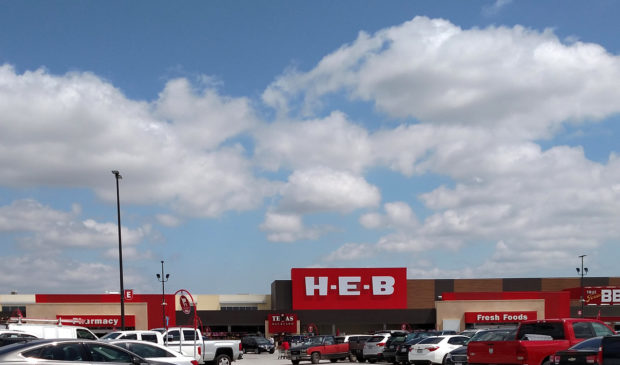St. Edward’s students lead effort to tackle food accessibility in Austin
Friday, April 1, 2022 by
Kali Bramble Students at St. Edward’s University’s Civics Lab are seeking to bring a class project to fruition this year, even if the work extends far beyond the classroom.
Following a year of policy development and advocacy led by political science professor Dr. David Thomason, student Benjamin Alford addressed the Capital Metropolitan Transportation Authority Board of Directors Monday to propose an initiative that would tackle food accessibility needs in the city of Austin.
“Eighteen percent of Austinites live in food insecurity, and we want to see what Capital Metro can do to help solve this food accessibility issue,” Alford said. “We know that the city has a lot of programs moving forward in this direction … and our hope is that Capital Metro can cooperate with us as we move forward to get these civic items passed.”
The Civics Lab has been hard at work since last fall, when students had the idea to connect current momentum around transit policy to long-standing food access issues plaguing underserved areas of Austin.
“We started with a simple idea, putting full-service grocery stores on transportation maps,” student James Motheral told the Austin Monitor. “What we’ve found is that what began as a City Council project has us now tackling pretty much all local government entities.”
According to the Civics Lab, Austin contains a total of 33 areas legally classified as food deserts, with 33 percent of residents living more than a mile from a full-service grocery store. For those without a car, this distance can prove a significant barrier to adequate nutrition, particularly with additional hurdles like age and disability.
Students hope that city-funded resources such as onboard pamphlets and station maps could help to connect transit users in food deserts to healthy and affordable food options. Alerting users of nearby groceries using digital displays, which began rolling out to a handful of buses in 2020, is also on the table.
The Civics Lab plans to discuss its proposal with the Austin-Travis County Food Policy Board at its next meeting in April, with ambitions to land on City Council’s agenda before the end of the year. In the meantime, Thomason and his team of students will continue fostering partnerships with groups like the American Heart Association, Central Texas Food Bank and Travis County school districts.
The students are currently working with Ojeda Middle School in Del Valle ISD, where several of Travis County’s food deserts are concentrated, on a gardening project they hope will raise awareness of the Civics Lab’s work. Next, they hope to partner with AISD and continue gathering momentum.
“We’re hoping to arrange a competition where students can submit posters, and winners will have their artwork put on Capital Metro buses,” said sophomore Cameron Critter. “We think this will be a good way to get people involved, for children to tell their parents and raise awareness about our initiatives … the more people we have on our side, the better.”
As for their larger ambitions, the Civics Lab is optimistic given the interest shown by Council members and the Capital Metro Board of Directors.
“There’s a huge potential here given the growth and funding of Project Connect, and this project could tie directly into that kind of initiative,” Motheral said. “It would be a very cost-effective way to make a big impact.”
“We know that aging with a fixed income in this city is a significant hardship,” Thomason said. “Investing in these kinds of programs allows us to prevent expenses for nursing homes and chronic disease management, ultimately leading to lower costs for end-of-life care.”
Those interested in the Civics Lab’s work can learn more via Twitter and the Civics Lab podcast, where the students regularly conduct panels about local and national civics issues.
Photo made available through a Creative Commons license.
The Austin Monitor’s work is made possible by donations from the community. Though our reporting covers donors from time to time, we are careful to keep business and editorial efforts separate while maintaining transparency. A complete list of donors is available here, and our code of ethics is explained here.
You're a community leader
And we’re honored you look to us for serious, in-depth news. You know a strong community needs local and dedicated watchdog reporting. We’re here for you and that won’t change. Now will you take the powerful next step and support our nonprofit news organization?







